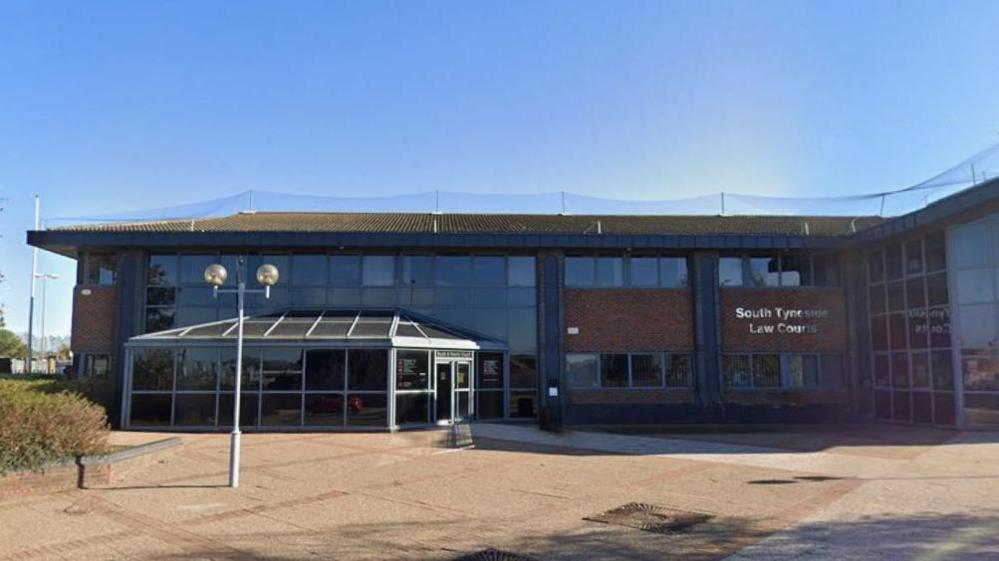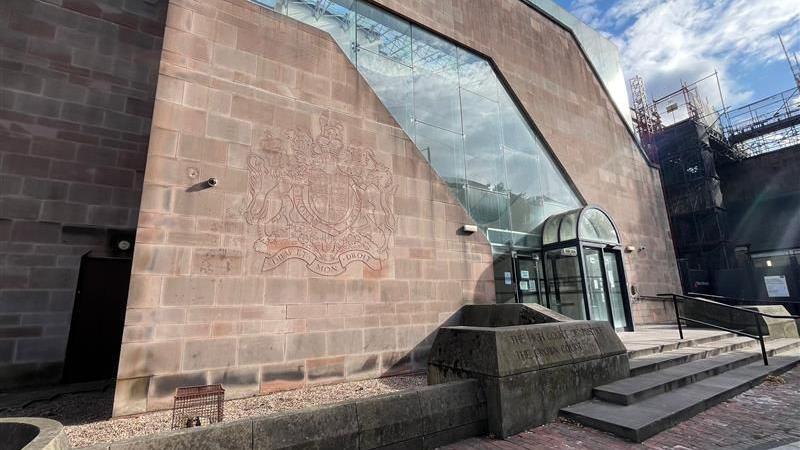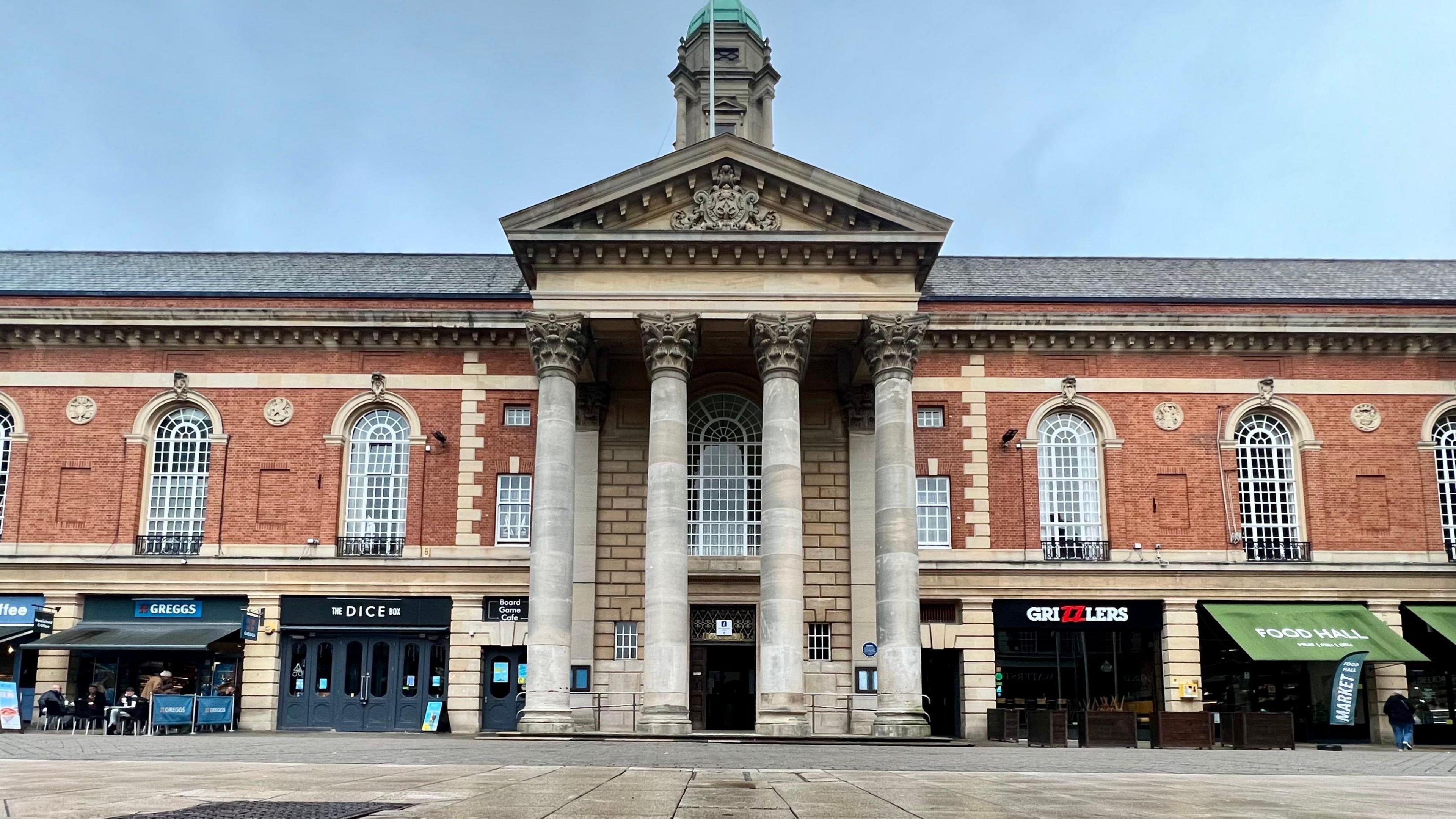Maggots from dead birds 'raining down' into court

Dead birds stuck in the roof of South Tyneside Law Courts led to maggots falling into the lobby
- Published
A law court was forced to close when maggots from rotting bird carcasses rained down from the ceiling, a report detailing issues in the justice system has revealed.
South Tyneside Magistrates' Court in South Shields shut early for two days after dead seagulls became trapped in the roof above the lobby.
The report from The Law Society of England and Wales said underinvestment had left courts struggling as "buildings fall into disrepair, technology fails and cases are delayed".
A Ministry of Justice (MoJ) spokesperson said the government was working "flat out" to ensure court buildings were safe.
In the State of the Courts report, one solicitor described South Tyneside Magistrates' Court as a "disgrace" and said it was only able to function due to "the excellent court staff holding everything together".
"To give an example, the court had to close early for two days within the last 12 months or so," said the unnamed solicitor.
"This was because dead and rotting seagulls were within the roof insulation.
"The court had to close because maggots were literally raining down on to the lobby."
The MoJ said bird netting was later installed at the court and there have been no further reports of seagulls nesting there.
Suspects 'urinate in bags'
Almost two-thirds (63%) of those who took part in the report's survey said they had experienced delays in cases being heard due to the poor state of courts.
The Law Society said cases being adjourned or moved had led to people being denied access to justice, with many at risk of losing their jobs or homes.
The report rated magistrates' courts in Uxbridge and Manchester as the worst.
"Manchester Magistrates' Court has a rat infestation," one respondent said.
"The cells regularly become overwhelmed, with vans queued up outside and suspects having to urinate in bags."
Courts in Doncaster, Preston, Lancashire and Harrow were also found to have problems relating to reinforced autoclaved aerated concrete (Raac).
One in five respondents said technology in courts was not fit for purpose, with prison video link systems failing to work and buildings suffering a shortage of plug sockets.
Meanwhile solicitors with a disability were significantly more likely to find the physical state of the courts "not at all fit" for purpose, largely due to a lack of ramps and working lifts.
'Freed from limbo'
Law Society president Richard Atkinson said the poor state of court buildings was a contributor to the huge backlog faced by the justice system, which includes 76,957 crown court cases and 35,475 open family court cases.
"Government underfunding is denying us, our children and our businesses a vital public service", said Mr Atkinson.
"Behind each of these statistics are tens of thousands of adults and children who could be freed from limbo and move forward with their lives if they could have their day in court."
He said it would be an "easy win" for the government to carry out targeted investment and improve technology.
The MoJ spokesperson said the department "is working flat out to ensure our courts and tribunals are safe, secure and equipped with the latest technology".
"We have already boosted capital funding to £148.5m and carried out around one million maintenance visits this year to make our buildings become fit for everyone who uses them."
Follow BBC North East on X, external, Facebook, external, Nextdoor and Instagram, external.
Get in touch
Do you have a story suggestion for BBC Tyne?
Related topics
- Published24 June

- Published9 July
